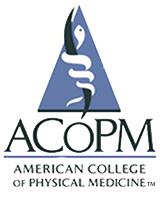Course Information
The American College of Physical Medicine
Board Certification in Life Coaching
A comprehensive life coaching course structured around the topics you've listed will provide participants with an in-depth, multidimensional education in the art, science, and practice of coaching. Here is what students would learn throughout such a course:
Students will first build a robust foundation by exploring the origins, philosophy, and core definitions of life coaching, clearly distinguishing coaching from related fields such as therapy or mentoring. This initial exploration emphasizes the unique role of the coach in enabling transformation through inquiry, support, and empowerment, setting the tone for ethical, effective practice.
They will then delve into theoretical models and frameworks underpinning coaching, including behavioral change theories, cognitive-behavioral models, positive psychology, mindfulness, and systems theory. Understanding these frameworks equips future coaches with evidence-based tools to address diverse client needs, as well as the ability to adapt their approach based on psychological and sociological principles.
As the course progresses, learners develop advanced coaching skills and techniques such as active listening, powerful questioning, goal setting (using SMART goals and customized planning), motivational interviewing, and use of various psychological tools like NLP or cognitive reframing. They will also be exposed to advanced techniques suited for complex client needs, including managing limiting beliefs, fostering emotional intelligence, and implementing mindfulness-based interventions.
Key sections address ethics and professional standards, covering confidentiality, boundaries, cultural competence, and adherence to recognized codes, such as those of the International Coaching Federation (ICF). Students learn how to navigate dilemmas and maintain professionalism, protecting client welfare and upholding the integrity of the profession.
The curriculum continues with an introduction to research methods in coaching, providing students with the ability to evaluate, apply, and contribute to the evidence base of coaching practice. This includes understanding qualitative and quantitative methodologies, using feedback for continuous improvement, and integrating research findings into client work.
Building on this, the course explores health and wellness coaching, where students learn to support clients in making sustainable lifestyle changes around health behaviors, well-being, and resilience. This specialization teaches evidence-based strategies like motivational interviewing and collaborative goal setting, and helps learners address barriers unique to health-related change.
Attention to coaching in diverse and global contexts ensures that students are prepared to work effectively across cultures, respect differences, and adjust their approach to accommodate language, cultural norms, and worldviews, enhancing cultural competence and equity in coaching.
The leadership and organizational coaching modules highlight how coaching skills support leaders, teams, and entire organizations in driving performance, leading change, and fostering effective communication and collaboration. Learners explore systems thinking, team dynamics, and the application of coaching to corporate, non-profit, or entrepreneurial settings.
Sections on professional development and supervision emphasize the importance of lifelong learning, reflective practice, peer and expert supervision, and self-care for coaches. Students learn how to cultivate and sustain a professional identity, manage professional boundaries, and remain responsive to new developments and ethical challenges in the field.
Finally, coaching for social change and community impact prepares students to use coaching as a tool for broader positive change. They learn how to empower marginalized groups, support community-based initiatives, address systemic barriers, and act ethically when working within diverse communities or advocating for social justice.
By the end of this course, learners will not only have mastered the core and advanced skills of life coaching but will have developed a critical, ethical, and holistic perspective—capable of transforming lives, organizations, and communities in a practical, research-informed, and culturally sensitive way.
* When you enroll, you will receive a receipt from PayPal.

